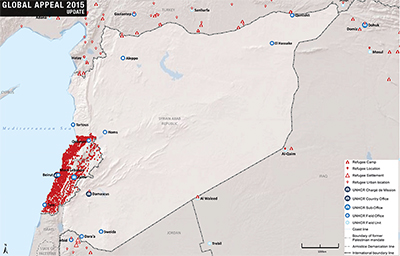
Nigeria
World Mental Health Day, October 10, 2014, Gede Foundation
There is a lack of mental health professionals in Nigeria and primary care providers are not trained or inclined to treat those with mental illness due to beliefs that there is a supernatural cause connected with developing a mental health problem. Often persistently mentally ill people are ostracized and may end up shackled and treated by traditional healers in informal settings or may be incarcerated. Only when these treatments have failed do a select few find their way to orthodox biomedical treatment.
In May of 2014 twelve local civil society organizations came together to discuss the new national policy on mental health services delivery. After a second meeting and further discussion in August the group decided to form a coalition to advocate for accessible and quality treatment services, push for policy implementation, conduct research and reduce stigma through promotion of awareness and education. The coalition is now known as the Mental Health Coalition Nigeria and calls for interested groups and professionals to promote mental health, address mental health issues and advocate for those who have mental health problems to join the coalition.
India

Union Health Minister Dr Harsh Vardhan addressing at the launch of the National Mental Health Policy, in New Delhi on October 10. Dr Nata Menabde, WHO representative to India; Lov Verma, union health secretary; Dr Jagdish Prasad, DGHS; are also seen. (Photo: PIB)
Union Health Minister Harsh Vardhan launched India’s first ever comprehensive Mental Health Policy. It calls for more accessible and affordable mental health treatment through inclusion of psychiatric care in primary health care settings. It recommends compassion and sensitivity as opposed to stigmatization and promotes protection of the rights of those with mental health problems.
It recommends that attempted suicide be decriminalized. In India suicide is considered a major cause of death for those with a mental health problem.
The policy states that, “poverty and mental ill health are inextricably linked in a negative vicious cycle”. This is an acknowledgement that poverty, social exclusion, unequal opportunity and income disparity may worsen mental health problems for vulnerable groups, especially poor and homeless women.
Vardhan also announced the ‘Mental Health Action Plan 365’, which specifies the roles to be played by the central government, state governments, localities and civil society organizations in the next year. In addition he pledged to present the recently developed mental health bill to Parliament. Passage of the bill is critical to the implementation of the policy and plan.
Syria

It is estimated that 10.8 million of Syria’s 22 million people have been affected by the conflict in Syria. There are 2.5 million refugees and 6.5 million internally displaced people in need of humanitarian assistance. According to a report by the UN High Commissioner of Refugees, it is believed that the rate of mental health problems has greatly increased due to the stress related to the conflict; extreme social disruption has a profound effect on psychological distress. It is believed that 350,000 people suffer from severe mental health problems and 2 million suffer from mild to moderate problems. In addition, a large percentage of the population is experiencing social/psychological distress and is at risk for developing mental health problems.
Since 2011 the problems inherent in living in such an unstable and potentially traumatizing environment have been recognized and small inroads are being made. Because meeting basic daily needs and mental health are so intertwined providing these basic needs is fundamental to mental well being. The United Nations Office for the Coordination of Humanitarian Affairs has been involved with providing coordination of humanitarian aid as well psychosocial support within Syrian and to refugees outside of Syria’s borders. International Medical Corps. is providing primary health care, mental health care and psychosocial support though their mobile health care units and their assistance to existing health and mental health facilities. They also have geared up provision of services to Syrian refugees residing in neighboring countries. The World Health Organization has been renovating four psychiatric facilities in Syria: a psychiatric hospital, 2 psychiatric units and an outpatient center. It is estimated that these facilities will serve over 11,000 patients who have mental health problems every year.
These are positive efforts to effect change for what the UN calls the “biggest humanitarian crisis of our era”. The UN and its partners are seeking 8.4 billion dollars to fund humanitarian efforts in this region in 2015.
It is hard to imagine what it would be like to have to cope daily with the stress of threats to your safety, security and survival. If you would like to help these organizations continue their work in Syria you can donate here.
